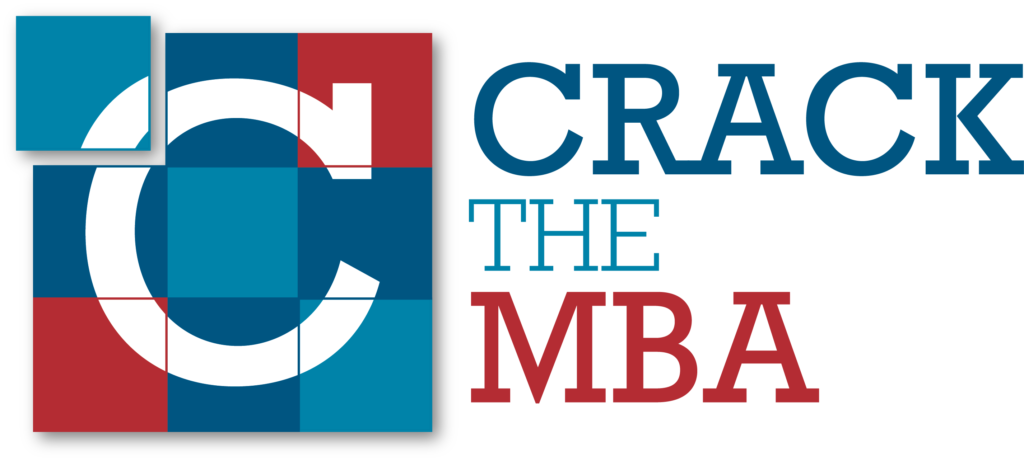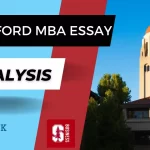5 expert tips to write an impressive MBA essay
Dee Leopold, former director of admissions at Harvard Business School, once said, “Applying to Harvard is not an essay writing contest.” What she wanted to advise was that candidates should start working on getting those rich experiences at work and beyond that could be used for writing impactful essays. Once they have a few stories to share they can begin introspecting to bring out suitable experiences to answer specific questions in the essay.
So, an “impressive essay” is one that is based on your unique experiences and manifests your true self in front of the MBA admissions committee.

If you’re looking to apply to a top business school, you should never forget this advice. To help you implement this advice in your essay, in this article, we’ll explain what MBA admissions committees look for in your essays and how to write an MBA essay that impresses the adcom.
First, let’s understand the types of MBA essays:
Types of MBA essays
Following are eight common types of MBA essays, which likely cover about 80-90% of the essay archetypes:
- Goals essay
- Self-Reflection essay
- Contribution & Impact essay
- Leadership & Teamwork essay
- Video essay
- Optional essay
- Application form essay
- Creative essay
Goals
This is one essay you can expect to see on MBA applications to most schools. The goal of this essay is to find out why you want to go to business school and what you plan to do afterward. More often than not, schools also ask applicants to share their motivations for wanting to pursue an MBA at their school. There are many different ways to answer the question and different word limits.
For example, Wharton has a 500-word question about this, while Darden has a 200-word specific question about this. On the other hand, MIT Sloan does not ask you at all about your goals.
Wharton essay prompt – How do you plan to use the Wharton MBA program to help you achieve your future professional goals? You might consider your experience, short and long-term goals, and resources available at Wharton. (500 words)
Darden essay prompt – At this time how would you describe your short-term, post-MBA goal in terms of industry, function, geography, company size, and/or mission and how does it align with the long-term vision you have for your career? (200 words)
Self-Reflection
In a self-reflection essay, you can talk about the values and traits that make up who you are as a person. These essays also give you an opportunity to talk about how you dealt with a failure or how you would handle an ethical dilemma.
Stanford GSB’s essay prompt is a perfect example. GSB requires applicants to talk about what matters most to them and why. Such questions require deep introspection in order for you to get to the core of your personality and influences.
Contribution & Impact Essay
The contribution essay in MBA applications is a great way for schools to assess what applicants might bring to the table. Some examples of such essays include:
Wharton – Taking into consideration your background– personal, professional, and/ or academic- how do you plan to make specific, meaningful contributions to the Wharton community?
Cornell Johnson – At Cornell, our students and alumni share a desire to positively impact the organizations and communities they serve. Taking into consideration your background, how do you intend to make a meaningful impact on an elite MBA community?
Leadership Essay
This MBA essay format allows you to tell an admissions committee about a time when you showed leadership or initiative, or some other favorable trait that they may use to judge your potential.
Here are a few samples of MBA essays:
Berkeley Haas – What kind of leader do you aspire to be and why?
Kellogg – Kellogg’s purpose is to educate, equip and inspire leaders who create lasting value. Provide a recent example where you have demonstrated leadership and created value. What challenges did you face and what did you learn?
Video Essay
Video essays can help give the admissions committee a chance to learn more about an applicant’s personality and how they may perform in job interviews. It also gives the admissions committee a chance to judge the candidate’s nonverbal and verbal communication skills, which can also help them select / eliminate candidates without investing limited resources in offering full-fledged interviews. And they can also be used to test a candidate’s ability to thrive in stressful situations. In case you are wondering how, allow us to explain. In many cases, you have as little as 30-60 seconds to formulate your answer before you have to deliver your response on-the-spot or extempore. Yikes! And then, there could also be an unusual situation like the one we heard at a conference with school representatives where a cat basically jumped into the frame when this person was completing a video essay and the person gracefully lifted the cat up and got her out of the way, all while smiling and completing delivery of her response. Talk about a superstar, right?
Examples – Kellogg Video essays
- Video essay 1: Please introduce yourself to the admissions committee.
- Video essay 2: What path are you interested in pursuing, how will you get there, and why is this program right for you?
- Video essay 3: This question will be based on a challenge you’ve faced and what you’ve learned from it.
Optional Essay
Optional essays are meant to explain extenuating circumstances related to academic performance, gaps in work experience, etc. (most schools have this) or provide additional information which makes this type of essay totally open-ended.
Examples:
Duke Fuqua – If you feel there are circumstances of which the admissions committee should be aware, please explain them here (e.g. unexplained gaps in work, choice of recommenders, inconsistent or questionable academic performance). Note that you should NOT upload additional essays or additional recommendations in this area. The Optional Information section is intended to provide the admissions committee with insight into your circumstances only.
London Business School – Is there any other information you believe the Admissions Committee should know about you and your application to London Business School?
Application Form Essay
These essays typically ask for supplemental information about you.
For example, London Business School asks these details
- Tell us about your responsibilities. Describe your day-to-day role, details of any clients you work with/for, the level/title of the person you report to, the size of the budget for which you are directly responsible, and the number of people in your team. (400 words max)
- Tell us about your main interests and activities in your free time. (300 words max)
Importance of MBA essays
Having a solid GMAT or GRE score is the first step toward creating a competitive MBA application. However, the process is not over yet. As the number of people applying to business schools continues to rise, standing out based only on your GMAT score becomes increasingly difficult. You won’t be the only person who applies with strong test scores. So, what can you do to improve your chances of getting into your target business school? Write an impeccable essay.
MBA essays are a great way to demonstrate your strengths, vulnerabilities, motivations and explain any parts of your application that could raise eyebrows. A low GMAT score or GPA can be explained by a well-written essay, but a strong test score alone will never make up for a bad essay. That’s how important an essay is.
And what makes a great essay great? The one that shows the ‘true’ you because that is what MBA admissions committees expect.
Jennifer Hayes, Senior Associate Director at Kellogg says, “We are looking for the story YOU wish to tell. The best essays I’ve read have heart, are not over-edited, and let the applicant’s personality emerge.”
What do MBA admissions committees want to see in your essays?
MBA admissions committees want to ‘know you better’ through your essays. They want to see a true reflection of yourself in your essay and this is exactly what the Stanford MBA admissions committee advises its applicants – “There is no typical Stanford MBA student, no ideal for applicants to chase. Our advice is to just focus on you and ensure that your application is a true reflection of yourself.”
Chad Losee, HBS’s Managing Director of MBA Admissions and Financial Aid, said that the main purpose of the essay is for them to learn more about you. The choices you’ve made, what drives you, and any experiences that have shaped you. But you shouldn’t be afraid to show who you are in the process.
He specifies 5 things to keep in mind while writing an essay for Harvard Business School admissions:
- The essay should add new information. It shouldn’t be another version of your resume.
- It should be of the right length. HBS MBA essay has a word limit of 900 words, so you should conclude within the word limit.
- The essay should be about ‘you’ – Ask yourself could this essay also describe someone else.
- The adcom should know you better after reading your essay
- While rewriting/editing to polish your resume, don’t shine away your personality.
Now that you know what MBA admissions committees wish to see in your essays let’s take a look at how to write an essay that impresses them.
Five tips to write an impressive MBA essay
Be Authentic
Don’t write what you think the people on the admissions committee want to read. Your best selling points are the things and experiences that make you unique. Each essay should give a clear picture of who you are, what drives you, and what you’re passionate about.
Don’t write what you think the people on the admissions committee want to read. Your best selling points are the things and experiences that make you unique. Each essay should give a clear picture of who you are, what drives you, and what you’re passionate about.
In a similar way, don’t feel like you have to fit the “ideal” candidate’s profile. The admissions committee will see right through this, and you could end up hurting your chances of getting in more than helping. Instead, put all your energy into just being yourself.
Kris Mercuri, Director of Admissions, Recruiting and Outreach at the Yale School of Management states, your essay is an “opportunity to speak in your own voice about something meaningful and distinctive in your life.” Don’t waste this opportunity by writing about something inauthentic that you think will make you look better, but is actually a pretense.
Carefully structure your essay
Blair Mannix, the admissions director at Wharton, shared in this video that all successful essays had the same structure: the setup, the pivot point, and the future.
The setup tells the admissions committee who you are, what you do, and what you’ve learned.
The pivot moment is when you switch from talking about what you know and do to what you want to learn and how it will help you achieve. Mannix calls this a “lightbulb moment,” when you realize you’d be better in your work with additional knowledge.
In the last portion of your essay, explain how obtaining knowledge and abilities/skills will improve your career and why that MBA program will make this achievable.
Answer the specific question asked
So many applicants submit well-written essays that fail to address the prompt. I strongly support thinking outside of the box and considering the “why” behind an essay topic. First and foremost, you must answer the question.
Business school applicants are generally extremely successful and over-achievers in their domains, and it might be tempting to try and cram your accomplishments into your essays. Don’t give in to this temptation; instead, zero in on the question at-hand.
Be Succinct
In our experience, several of the best full-time MBA programs are imposing tighter word limits on essays. In recent application cycles, many schools have lowered their required essay word counts, including Michigan Ross, Stanford GSB, UCLA Anderson, and Duke Fuqua. In fact, Harvard Business School, which previously did not have a word limit, has introduced a 900-word-limit on its single prompt in the year 2022-23. Moreover, schools are also mandating checks in their applicant portals where candidates are no longer able to exceed word limits either. Keeping these patterns in mind, it’s important to remember one important piece of guidance: keep it short and sweet.
Focus on giving a few essential highlights, peppering in some intriguing details, and letting your true voice come through in your writing rather than trying to inundate the reader with information. Explain your decisions, highlight your achievements, and talk about what you’re passionate about. It will be easier to accomplish this goal if you narrow the scope of your essays.
Write Business School specific essays
It might seem self-evident that the topic of your business school application essay should be the business school itself. However, this is an excellent chance to demonstrate your preparation and interest in the school in question.
Do you know what courses you would want to pursue? If you are accepted, have you decided which extracurricular activities you wish to participate in? How would you contribute to the school’s community?
Have answers to these questions ready. These will certainly show why you consider this particular business school an important place that will transform you personally and professionally
You now know what to do to make your essay an impressive one. Next, you should know the things to avoid while writing your essays.
Do you want to impress the MBA Adcom with your essay?
At Crack The MBA, we have helped hundreds of students get into top MBA programs around the world. We would be happy to help you too. Schedule a consultation with us today to learn more about our services and how we can help you get into your dream school.
10 mistakes to avoid in your MBA essays
Top MBA programs look for candidates from all over the world who share their school’s values, want to grow personally and professionally, and can organize their thoughts and talk in a clear way. With so much competition from around the world, it’s even more important that your MBA admissions essays stand out.
Your admissions essays can’t have any mistakes if you want to get into a top business school. There are many different things you can tell the adcom, but there are also a few things you should never do.
Here are 10 mistakes you should avoid in MBA essays:
- Starting too late. Our rule of thumb is to expect to spend 11-12 weeks on applications to 4-5 business schools
- Not researching adequately. Not making an effort to understand the school and how it fits into your plans
- Recycling essays from one school to another
- Not answering the essay question and/or not addressing each part of the question.
- Trying to copy sample essays
- Providing too many instances, at the risk of confusing the reader
- Not providing something new. Repetitive content
- Lack of introspection
- Not proofreading.
- Lack of flow
Final Thoughts
Getting into a good business school can be hard if you don’t know how to write a great MBA admissions essay.
But the process is much easier to handle if you know where to start, make an outline for each essay, and get help from an expert. If you follow these steps, you’ll be able to write a great MBA essay!
Get in touch with us for expert help on your essays. As a result of our interactions with MBA admissions committee members at all top schools, we understand what the MBA admissions committee looks for in a candidate and can advise you appropriately.
Do you want to impress the MBA Adcom with your essay?
At Crack The MBA, we have helped hundreds of students get into top MBA programs around the world. We would be happy to help you too. Schedule a consultation with us today to learn more about our services and how we can help you get into your dream school.






